Film Resistors
Metal Film ResistorsMetal film resistors feature a thin layer of metal deposited on a non-conductive core, typically ceramic. These are among the most common types of axial resistors and are widely recognized for their superior stability, precision, and low noise compared to other film types, such as carbon film resistors. Though commonly found in cylindrical axial formats, the same metal film technology is used in thin film chip resistors, often found in surface-mount designs. While metal film and carbon film resistors may appear similar, metal film versions offer enhanced performance in terms of tolerance and long-term reliability.
Thin Film ResistorsThin film resistors use a very thin metal layer—usually applied via vacuum deposition—on a ceramic substrate. These resistors are ideal for applications requiring:
High accuracy
Excellent temperature stability
Low noise
They are commonly used in:
Test and measurement equipment
Medical devices
Precision instrumentation
Audio and control systems
Thick Film ResistorsThick film resistors are the most widely used resistors in modern electronics. They are created by screen-printing a resistive paste (a mixture of glass and conductive materials) onto a ceramic substrate. After printing, the resistance value can be fine-tuned using laser or abrasive trimming.
These resistors are used in virtually all electronic devices—from household appliances to computers. For instance, a typical PC contains over 1,200 chip resistors, the majority of which are thick film types. Due to their low cost and ease of production, thick film resistors are preferred unless the application demands tight tolerance, low noise, or exceptional stability.
Advanced thick film power resistor technology allows for high resistance values on either cylindrical or flat substrates. Designs can include serpentine patterns to minimize inductance, which is advantageous in applications with consistent frequencies.
Showing 1–9 of 1285 results
-
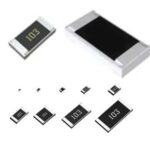
0603WGF3161T5E Royal Ohm Thick Film Resistor 3.16k Ohms 1% 1/16W SMD 0603
Read more -
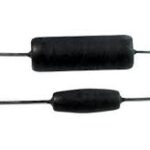
1/4W-22-5% D-Age Carbon Film Resistor 22 Ohms 1/4W 5% Axial
Read more -

1/4W-487K-1% Metal Film Resistor 487k Ohms 1/4W 1% Axial
Read more -
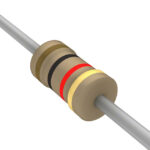
11R102 Carbon Film Resistor 1k Ohms 1/8W 5% Axial
Read more -
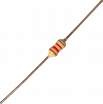
12R151 Carbon Film Resistor 150 Ohms 5% 1/4W Axial
Read more -
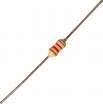
12R181 Carbon Film Resistor 180 Ohms 1/4W 5% Axial
Read more -
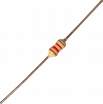
12R185 Carbon Film Resistor 1.8M Ohms 1/4W 5% Axial
Read more -
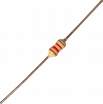
12R224 Carbon Film Resistor 220k Ohms 5% 1/4W Axial
Read more -
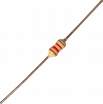
12R225 Carbon Film Resistor 2.2M Ohms 5% 1/4W Axial
Read more